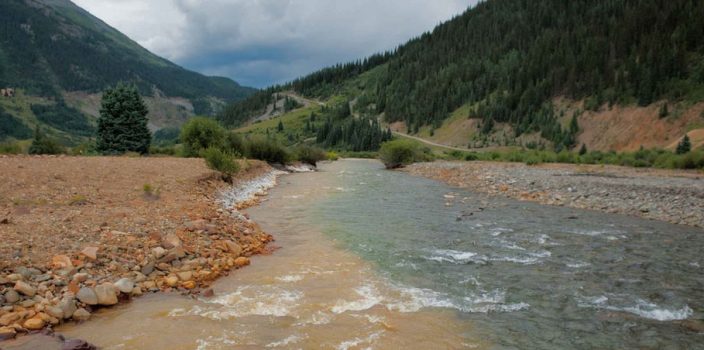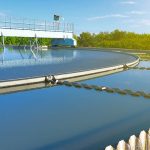Water quality is a critical environmental and human health concern in Europe, as pollution, over-extraction, and climate change continue to impact water resources. In order to address these challenges, sustainable water management practices have emerged as a viable solution. Sustainable water management involves a holistic and integrated approach to managing water resources, with a focus on pollution prevention, water conservation, ecosystem-based approaches, and climate change adaptation. We will explore the current state of water quality in Europe, discuss various sustainable water management practices, highlight the benefits and challenges associated with these practices, and emphasize the importance of policy and governance for their successful implementation. By promoting sustainable water management practices, we can improve water quality, protect water resources, and ensure a sustainable water future for Europe.
Sustainable Water Management Practices
Sustainable water management practices play a crucial role in improving water quality in Europe. With growing concerns about pollution, over-extraction, and climate change impacts on water resources, it has become imperative to adopt sustainable approaches to safeguard water quality. In this blog section, we will discuss various sustainable water management practices that can be implemented in Europe to address these challenges and promote better water quality.
Water Pollution Prevention Measures:
Reducing point source pollution from industries and wastewater treatment plants, and controlling non-point source pollution from agriculture and urban runoff are essential measures to prevent water pollution. Strict regulations, monitoring, and enforcement can help industries and wastewater treatment plants to adopt cleaner technologies and practices, reducing the discharge of harmful pollutants into water bodies. Implementing best management practices in agriculture, such as reducing chemical fertilizer and pesticide use, promoting sustainable farming practices, and managing urban runoff through green infrastructure, can also prevent pollution and improve water quality.

Water Conservation and Efficiency Measures:
Promoting water-saving technologies, implementing water pricing mechanisms, and encouraging water reuse and recycling are effective measures for water conservation and efficiency. Technologies such as drip irrigation, smart irrigation systems, and water-efficient appliances can help reduce water consumption in agriculture, industries, and households. Implementing water pricing mechanisms that reflect the true value of water can incentivize users to adopt water-saving measures. Moreover, promoting water reuse and recycling in industries, agriculture, and households can reduce the demand for freshwater resources and minimize the discharge of pollutants into water bodies.
Integrated Water Resources Management (IWRM) Approaches:
IWRM involves considering the entire water cycle and managing water resources in a holistic and sustainable manner. This approach promotes coordination and integration among different sectors, stakeholders, and levels of governance involved in water management. By integrating water allocation, water quality, water infrastructure, and water governance, IWRM aims to optimize water use, minimize conflicts, and improve water quality. IWRM approaches, such as river basin management, have been successfully implemented in Europe, leading to improved water quality through coordinated efforts among various stakeholders.
Ecosystem-based Water Management:
Protecting and restoring natural ecosystems, such as wetlands, rivers, and forests, can greatly improve water quality and enhance water retention capacity. Wetlands act as natural filters, removing pollutants and improving water quality. Rivers and forests help regulate water flow and reduce erosion, which can prevent sedimentation and pollution in water bodies. Restoring degraded ecosystems and protecting them from further degradation can contribute to sustainable water management and safeguard water quality.
Climate Change Adaptation Strategies:
Climate change can have significant impacts on water quality, including increased pollution from extreme weather events, changes in water temperature and chemistry, and altered hydrological patterns. Developing resilient water infrastructure, implementing floodplain restoration measures, and improving water governance can help cope with these impacts. Building resilient water infrastructure, such as flood protection measures, can prevent contamination of water sources during extreme weather events. Restoring floodplains can act as natural buffers, absorbing excess water and reducing pollution. Furthermore, improving water governance by integrating climate change considerations into water management policies, regulations, and planning can ensure adaptive management of water resources and protect water quality.
Policy and Governance for Sustainable Water Management
Effective policy and governance play a crucial role in promoting sustainable water management practices in Europe. With increasing concerns about water quality, scarcity, and climate change impacts, robust legal and policy frameworks are essential to ensure the sustainable use and protection of water resources. In this blog section, we will explore the role of policy and governance in promoting sustainable water management practices in Europe, review the current legal and policy framework, discuss challenges and opportunities at different governance levels, and highlight the need for stakeholder engagement and participatory decision-making processes.
The Role of Policy and Governance:
Policy and governance provide the foundation for sustainable water management practices. They set the rules, regulations, and guidelines for water management, and determine the roles and responsibilities of different stakeholders. Effective policies and governance frameworks create an enabling environment for the adoption and implementation of sustainable water management practices. They facilitate coordination and integration among different sectors, stakeholders, and levels of governance, and ensure that water resources are managed in a holistic, transparent, and sustainable manner.

Current Legal and Policy Framework for Water Management in Europe:
Europe has a robust legal and policy framework for water management, including the European Water Framework Directive (WFD), the Urban Wastewater Treatment Directive, and other relevant regulations and directives. The WFD, adopted in 2000, is a cornerstone of European water policy, aiming to achieve good water status for all European waters by 2027. It emphasizes integrated water resources management, stakeholder participation, and the application of economic principles in water management decisions. The Urban Wastewater Treatment Directive sets standards for urban wastewater treatment to protect water quality. Other regulations and directives, such as the Nitrates Directive, the Floods Directive, and the Water Scarcity and Droughts Directive, also contribute to the legal and policy framework for water management in Europe.
Challenges and Opportunities at Different Governance Levels:
Implementing sustainable water management practices faces challenges and opportunities at different governance levels. At the local level, challenges may include lack of technical and financial capacity, conflicting interests among stakeholders, and limited awareness about sustainable water management practices. At the regional and national levels, challenges may include coordination and integration among different sectors and stakeholders, competing policy priorities, and resource constraints. At the transboundary level, challenges may include conflicting interests among countries sharing water resources, differences in legal and policy frameworks, and complex governance arrangements. However, there are also opportunities, such as regional cooperation, knowledge sharing, and innovative governance approaches, to address these challenges and promote sustainable water management practices across different governance levels.
Stakeholder Engagement and Participatory Decision-making Processes:
Effective stakeholder engagement and participatory decision-making processes are crucial for the successful implementation of sustainable water management practices. Engaging stakeholders, such as local communities, industries, farmers, NGOs, and academia, ensures that diverse perspectives and interests are taken into account in water management decisions. Participatory decision-making processes, such as public consultations, stakeholder workshops, and multi-stakeholder platforms, foster ownership, transparency, and accountability in water management decisions. Integrated water governance approaches, such as river basin management, involve stakeholders in planning, implementation, and monitoring of water management actions, ensuring that decisions are informed by local knowledge, needs, and aspirations.



